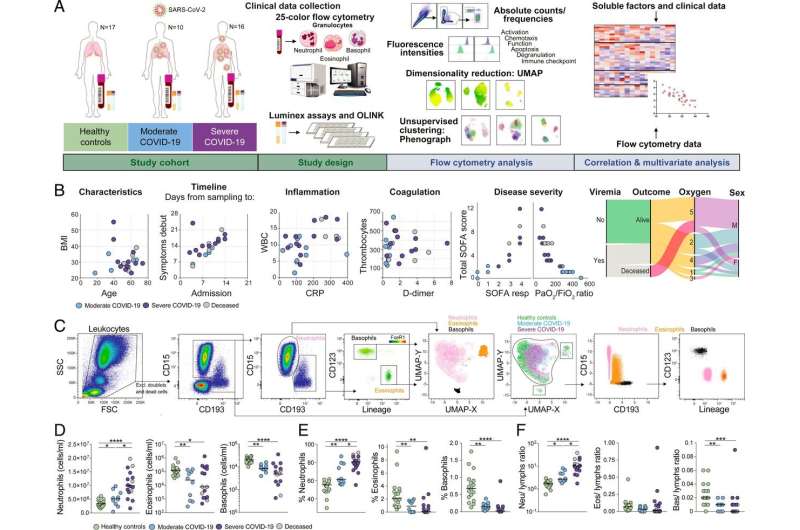
COVID-19 disease severity seems to be affected by the characteristics of white blood cells called granulocytes, which are part of the innate immune system. Combined measurements of granulocytes and well-known biomarkers in the blood can predict the severity of the disease, according to a new study from Karolinska Institutet. The results are published in the journal PNAS and may eventually contribute to more tailored treatments for COVID-19 patients.
Granulocytes are a family of white blood cells that include neutrophils, eosinophils and basophils. They are part of the so-called innate immune system, which is the body’s first line of defense against pathogens. There are many studies on how SARS-CoV-2 affects various components of the immune system, but there is still a lack of knowledge about the role of granulocytes in COVID-19.
Researchers at Karolinska Institutet have now investigated the characteristics of granulocytes in the blood during the early phase of SARS-CoV-2 infection in a total of 26 hospitalized patients with COVID-19 at the Karolinska University Hospital. They also performed follow-up analyses four months after hospital discharge and compared these with analyses of healthy uninfected individuals.
Significantly altered characteristics
“Our study shows significantly altered characteristics of all granulocyte subsets in COVID-19 patients and this can be linked to the severity of the disease,” says lead author Magda Lourda, who is a researcher at the Department of Medicine, Huddinge, at Karolinska Institutet.
Combined measurements of granulocyte characteristics and widely used biomarkers in the blood called C-reactive protein (CRP) and creatinine, could predict key clinical features such as respiratory function and multiorgan failure.
Source: Read Full Article